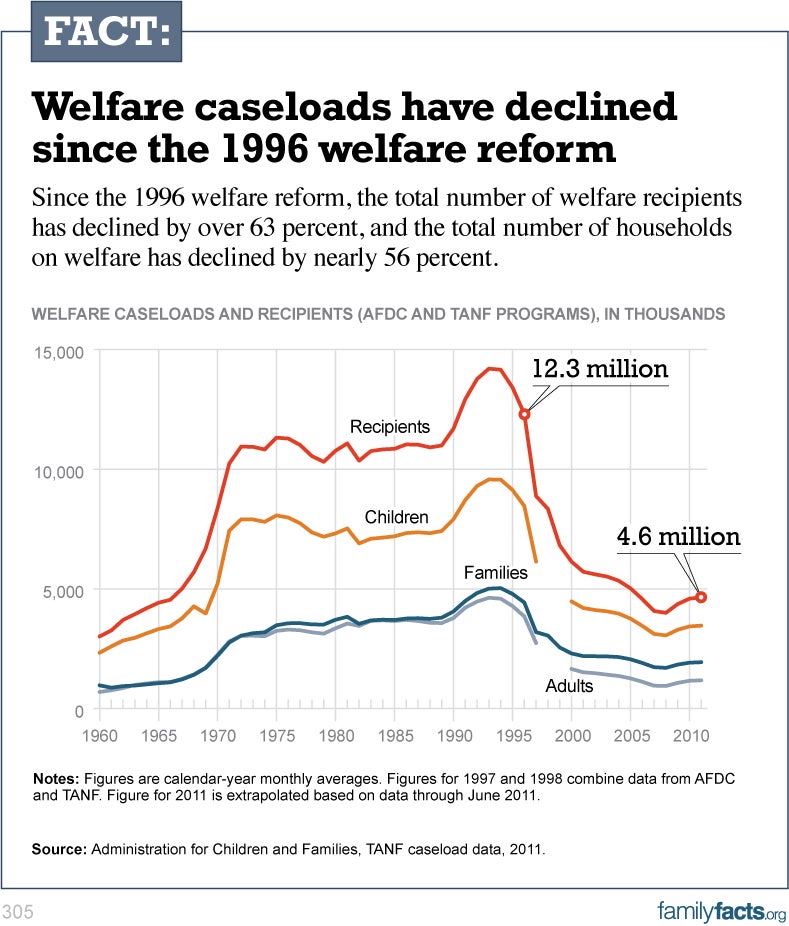The best anti-poverty program is a job. That was the mantra of the 1996 welfare reform, which changed the Aid to Families with Dependent Children program into the Temporary Assistance for Needy Families (TANF) program, for the first time requiring able-bodied welfare recipients to work or prepare for work in order to receive government assistance.
The reforms were a major success. State caseloads declined after decades of stagnation as people began to leave welfare for jobs. (continued below chart)
Last Thursday, however, the Obama Administration decided to gut welfare reform of its critical work requirement, issuing a directive to waive the work requirement. This action is not only an affront to the rule of law but also strangles the principles of work and personal responsibility that helped so many individuals and families.
During the four decades prior to the 1996 welfare reform, the number of participants on welfare remained steady. Within just a few years of TANF’s implementation, however, the number of caseloads was cut in half, and employment rates and earnings among the poor increased. Nearly 3 million families left welfare for work.
The child poverty rates declined significantly. Roughly 3 million fewer children lived in poverty in 2003 than in 1995, including 1.2 million fewer black children, marking the lowest level of black child poverty in the nation’s history.
Rather than keeping people trapped on government welfare—for an estimated average of 13 years prior to the reform—welfare moved people from government dependence into work. It aimed to break the cycles of government dependence and give children growing up in poor families greater hope of not later ending up on welfare themselves.
However, the successful work requirements of welfare reform have been severely hampered over the years. The Obama Administration’s move last Thursday will effectively obliterate the work requirement completely.
Two of the greatest contributors to poverty in the United States are the lack of work among low-income persons, even in good economic times, and the increasingly high rate of unwed childbearing. Not only has the President failed to address these issues, but his Administration has now completely diminished the importance of work.
Helping individuals and families achieve self-reliance should be the goal of any sound welfare program. The welfare reforms of 1996 embraced this goal and, by doing so, helped move people off of government dependence.
Rather than turning back the clocks on welfare reform, work requirements should be restored, allowing individuals to help themselves and giving families and children hope for a future free from government dependence.
